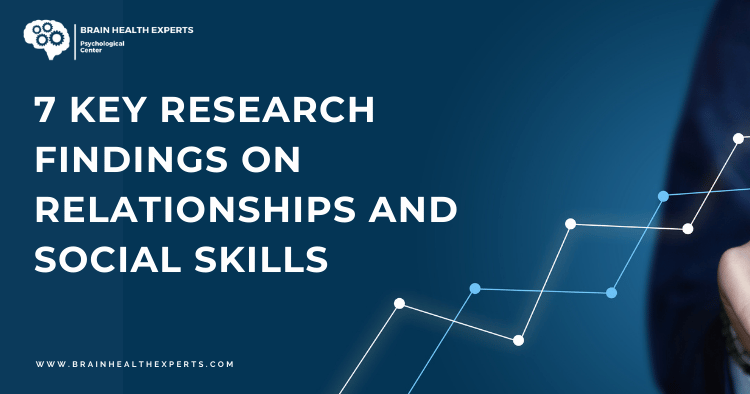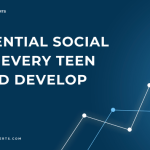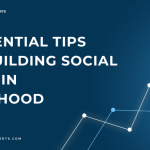Table of Contents
- Introduction
- The Importance of Relationships
- Social Skills and Mental Health
- The Role of Emotional Intelligence
- The Impact of Technology on Social Skills
- Cultural Differences in Social Skills
- Building Stronger Relationships
- Conclusion
Introduction
Relationships are the thread that weaves through the fabric of our lives, influencing our well-being, mental health, and overall happiness. Research into relationships and social skills sheds light on how we interact with others and the profound effects these interactions have on our daily lives. In this article, we will explore seven key research findings that underscore the importance of nurturing healthy relationships and developing robust social skills.
1. The Importance of Relationships
Numerous studies have shown that strong relationships contribute significantly to our overall health and longevity. According to a comprehensive review published in the journal PLOS Medicine, people with strong social connections have a 50% increased likelihood of survival compared to those with weaker connections. This finding emphasizes that relationships aren’t just nice to have; they are essential for our well-being.
Key Takeaway: Building and maintaining strong relationships is crucial for a longer, healthier life. For practical tips on how positive thinking can impact relationships, see 10 Ways Positive Thinking Transforms Your Relationships.
2. Social Skills and Mental Health
Research indicates a clear link between social skills and mental health. A meta-analysis published in Psychological Bulletin found that individuals with poor social skills are at a higher risk for mental health issues such as depression and anxiety. Conversely, those with strong social skills tend to report higher levels of life satisfaction.
Visual Element: Table of Mental Health Benefits of Good Social Skills
| Benefit | Description |
|---|---|
| Increased Happiness | Socially skilled individuals report higher levels of happiness. |
| Reduced Stress | Strong social ties can buffer stress and promote resilience. |
| Lower Rates of Depression | Good social skills correlate with lower depression rates. |
Key Takeaway: Developing social skills can enhance mental health and emotional resilience. Explore more techniques to boost mental health in 10 Positive Thinking Exercises to Boost Mental Health.
3. The Role of Emotional Intelligence
Emotional intelligence (EI) is the ability to recognize, understand, and manage our own emotions while also understanding the emotions of others. Research published in the Journal of Personality and Social Psychology shows that individuals with high emotional intelligence are better at navigating social situations, resolving conflicts, and building strong relationships.
Emotional intelligence can be cultivated through self-awareness, empathy, and effective communication, making it an essential skill for fostering healthy connections. For insights into improving your emotional intelligence, check out Understanding Emotional Intelligence: Key Insights & Benefits.
Key Takeaway: Enhancing emotional intelligence can lead to improved social skills and better relationships.
4. The Impact of Technology on Social Skills
In our increasingly digital world, the way we communicate has transformed dramatically. A study in the Journal of Social and Personal Relationships found that excessive reliance on technology for communication can hinder the development of face-to-face social skills.
While technology can enhance connections, especially in long-distance relationships, it is essential to find a balance. Engaging in in-person interactions is vital for developing non-verbal communication cues and empathy. For tips on managing stress related to technology use, see 10 Common Stress Triggers and How to Identify Them.
Key Takeaway: While technology facilitates communication, prioritizing face-to-face interactions is crucial for developing social skills.
5. Cultural Differences in Social Skills
Social skills are not universal; they are heavily influenced by cultural norms and values. Research indicates that cultures vary in their expectations for social interaction—for instance, collectivist cultures may prioritize group harmony and indirect communication, while individualist cultures may emphasize assertiveness and directness.
Understanding these differences can improve cross-cultural communications and help individuals navigate social situations more effectively.
Key Takeaway: Being aware of cultural differences in social norms can enhance your social skills and relationship-building abilities.
6. Building Stronger Relationships
Building strong relationships is an art that requires intentional effort. Research from the American Psychological Association highlights key strategies for fostering healthy connections:
- Active Listening: Truly listening to others builds trust and strengthens bonds.
- Open Communication: Being honest and transparent encourages mutual understanding.
- Shared Experiences: Engaging in activities together fosters a sense of belonging and camaraderie.
For effective strategies to strengthen relationships at work, see 10 Effective Strategies to Boost Resilience at Work.
Key Takeaway: Proactively cultivating relationships through active engagement and communication leads to deeper connections.
7. Conclusion
Understanding the intricacies of relationships and social skills is essential for personal growth and well-being. As we’ve seen through these key research findings, nurturing strong connections and developing effective social skills can significantly enhance our quality of life. By focusing on emotional intelligence, balancing technology use, and respecting cultural differences, we can build and maintain fulfilling relationships that stand the test of time.
For more insights into relationships and social skills, check out resources from Psychology Today and The American Psychological Association.
By embracing the power of relationships and actively working on our social skills, we can create a fulfilling and connected life. Remember, it’s never too late to start building those connections!





